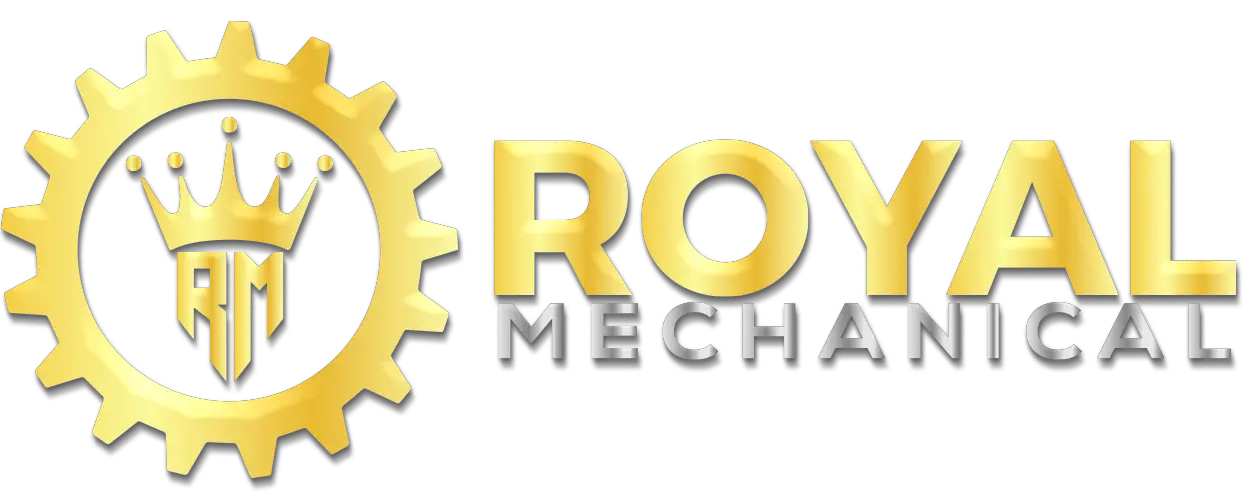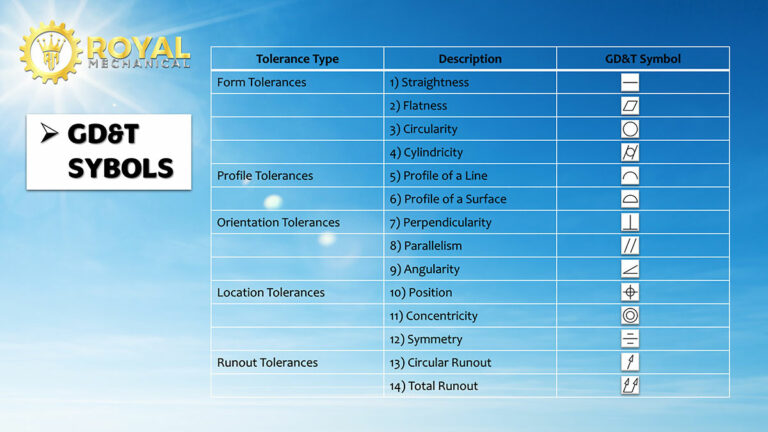
Ready to secure your dream job and boost your income? Dive into our comprehensive guide on high-paying mechanical engineering careers and the ultimate step-by-step roadmap to land them in 2023! Discover the secrets to success, from resume hacks to networking strategies, and unleash your potential as a mechanical engineer. Don’t miss this opportunity to turbocharge your career and financial prospects. Watch now and take the first step towards your engineering dream job!”
I. List all the high-paying core mechanical engineering jobs.
High-paying core mechanical engineering jobs often include:
| High-Paying Mechanical Engineering Jobs | Job Description (Brief) |
| 1) Aerospace Engineer: | Designing and developing aircraft, spacecraft, or related systems. |
| 2) Petroleum Engineer: | Focusing on the extraction of oil and gas resources. |
| 3) Nuclear Engineer: | Working with nuclear energy and radiation systems. |
| 4) Robotics Engineer: | Designing and programming robots for various applications. |
| 5) Automotive Engineer: | Designing and improving vehicles and their systems. |
| 6) Biomedical Engineer: | Creating medical devices and equipment. |
| 7) Power Plant Engineer: | Managing and optimizing energy production facilities. |
| 8) Marine Engineer: | Designing and maintaining ships and maritime systems. |
| 9) HVAC Engineer: | Specializing in heating, ventilation, and air conditioning systems. |
| 10) Process Engineer: | Focusing on optimizing manufacturing processes. |
| 11) Structural Engineer: | Designing and analyzing structures like bridges and buildings. |
| 12) Materials Engineer: | Developing new materials for various industries. |
| 13) Control Systems Engineer: | Designing and implementing automated control systems. |
| 14) Renewable Energy Engineer: | Working on sustainable energy solutions. |
| 15) Machine Learning Engineer (in mechanical applications): | Applying AI and machine learning to mechanical engineering tasks is a growing field. |
Please note that salaries vary depending on location, experience, and industry demand. High-paying positions often require advanced degrees or specialized expertise.
II. Can I get a high-paying job if I acquire mechanical design skills?
Absolutely. Acquiring mechanical design skills can open up high-paying job opportunities in various industries. Mechanical design is crucial in many fields, including aerospace, automotive, manufacturing, and more. Engineers who excel in mechanical design are often in demand because they contribute to developing innovative products and systems. Stay up-to-date with the latest design software and technologies can further enhance your marketability and earning potential in this field.
III. Relevant skills that are essential to become a mechanical design engineer.
To become a successful mechanical design engineer, you should possess various technical and soft skills. Here’s a list of relevant skills that are essential for this career:
Technical Skills:
| Technical Skills | Description (Brief) |
| 1) CAD Software Proficiency: | Proficiency in Computer-Aided Design (CAD) software like AutoCAD, SolidWorks, CATIA, or Pro/ENGINEER is fundamental for creating detailed designs and models. |
| 2) Engineering Knowledge: | Strong understanding of mechanical engineering principles, thermodynamics, materials science, and manufacturing processes. |
| 3) Mathematics and Physics: | Strong mathematical and physics skills are necessary for analyzing and solving complex engineering problems. |
| 4) 3D Modeling: | Ability to create and manipulate 3D models and assemblies for design and simulation. |
| 5) Finite Element Analysis (FEA): | Familiarity with FEA software to perform stress, thermal, and structural analysis on designs. |
| 6) Technical Drawing and Blueprint Reading: | Proficiency in reading and creating technical drawings and blueprints. |
| 7) Materials Selection: | Knowledge of material properties and the ability to select appropriate materials for specific applications. |
| 8) Prototyping and Testing: | Experience with building prototypes and conducting tests to validate designs. |
| 9) Manufacturing Processes: | Understanding various manufacturing methods, including machining, molding, and additive manufacturing. |
Soft Skills:
| Soft Skills | Description (Brief) |
| 1) Problem-Solving | Strong problem-solving skills to identify and address design challenges and optimize solutions. |
| 2) Creativity | The ability to think creatively and generate innovative design concepts. |
| 3) Attention to Detail | Being meticulous and ensuring accuracy in design specifications. |
| 4) Communication | Practical communication skills to collaborate with cross-functional teams and present design concepts and ideas. |
| 5) Project Management | Organizational skills to manage multiple projects, set priorities, and meet deadlines. |
| 6) Critical Thinking: | The capacity to analyze and evaluate designs critically and make data-driven decisions. |
| 7) Teamwork: | The ability to work well in a team environment and contribute to a collaborative engineering effort. |
| 8) Adaptability: | Being open to learning and adapting to new technologies and design methodologies. |
| 9) Time Management: | Efficiently managing time and resources to complete projects on schedule. |
| 10) Ethical Awareness: | Understanding and adhering to ethical and safety standards in engineering design. |
| 11) Continuous Learning: | Keeping up-to-date with the latest advancements in mechanical design and engineering. |
Developing and honing these skills will help you excel as a mechanical design engineer and pursue a rewarding career.
IV. How to gain relevant experience to get a mechanical design engineer job.
Gaining relevant experience as a fresh mechanical engineer to secure a mechanical design engineer job is essential. Here are the steps to help you build the necessary expertise.
| Steps to help you build the necessary experience | Description (Brief) |
| 1) Internships and Co-op Programs: | Look for internships or cooperative education (co-op) programs during your undergraduate studies. These opportunities allow you to work with experienced engineers and gain hands-on experience in a real engineering environment. |
| 2) Entry-Level Positions: | Seek entry-level positions such as a mechanical engineering technician or junior engineer. These roles often involve assisting senior engineers with design tasks and can be a stepping stone to more advanced positions. |
| 3) Personal Projects | Work on personal engineering projects or join engineering clubs and organizations at your university to gain practical experience. Building projects related to mechanical design, such as building a robot or designing a prototype, can showcase your skills to potential employers. |
| 4) Online Courses and Certifications | Consider taking online courses or obtaining certifications related to CAD software (e.g., SolidWorks, AutoCAD) and FEA tools (e.g., ANSYS, Abaqus). This demonstrates your commitment to enhancing your technical skills. |
| 5) Networking | Attend industry conferences, job fairs, and engineering meetups to network with professionals in the field. Networking can lead to internship opportunities and job referrals. |
| 6) Volunteer Work | Look for volunteer opportunities or engineering-related projects in your community. Non-profit organizations and local initiatives often need engineering expertise. |
| 7) Build an Online Portfolio | Create an online portfolio showcasing your projects, designs, and any relevant coursework. A well-documented portfolio can impress potential employers and demonstrate your capabilities. |
| 8) Graduate Studies | Consider pursuing a master’s degree in mechanical engineering, focusing on design to further specialize and increase your competitiveness in the job market. |
| 9) Apply for Entry-Level Design Positions | Once you have experience and a strong understanding of design principles, apply for entry-level mechanical design engineer positions. Tailor your resume and cover letter to highlight your relevant coursework, projects, and design-related experience. |
| 10) Continual Learning | Stay up-to-date with the latest developments in mechanical design by reading industry publications, attending webinars, and taking advanced design courses. |
Remember that gaining experience takes time, so be persistent and open to opportunities that allow you to grow as an engineer. Additionally, don’t underestimate the value of networking and building relationships within the industry to help you find suitable positions.
V. A step-by-step guide or approach to getting a mechanical design engineering job.
Here’s a step-by-step guide to help you secure a mechanical design engineering job in the industry as a fresh mechanical engineer:
| STEP | Steps to help you build the necessary experience | Description (Brief) |
| 1 | Set Clear Goals and Objectives: | Determine the specific industry or field you want to work in, such as automotive, aerospace, consumer electronics, or manufacturing. |
| 2 | Resume Preparation: | Create a well-structured and concise resume highlighting your education, relevant coursework, technical skills (including CAD software proficiency), internships, personal projects, and appropriate extracurricular activities. |
| 3 | Portfolio Development: | Build an online portfolio showcasing your design projects, including detailed descriptions, images, and any simulation or analysis work you’ve done. |
| 4 | Networking: | Attend industry events, job fairs, and local engineering meetups to network with professionals in your chosen field. Connect with alumni from your university who are working in design roles. |
| 5 | Online Presence: | Optimize your LinkedIn profile to reflect your skills, experiences, and career aspirations. Join engineering-related groups and follow companies you’re interested in. |
| 6 | Apply for Entry-Level Positions: | Look for entry-level mechanical design engineering positions that match your interests and qualifications. Customize your applications for each job, emphasizing how your skills align with the specific requirements. |
| 7 | Prepare for Interviews: | Practice answering common interview questions and be ready to discuss your design projects in detail. Showcase your problem-solving skills, technical knowledge, and passion for design. |
| 8 | Research Companies: | Research potential employers to understand their products, culture, and values. Tailor your applications and interview responses to demonstrate your alignment with their goals. |
| 9 | Internships and Co-op Programs: | Apply for internships or co-op programs, even if they are not directly design-focused. These opportunities can still provide valuable industry experience and connections. |
| 10 | Online Courses and Certifications: | Consider taking online courses or obtaining certifications in CAD software and FEA tools to enhance your technical skills and stand out to employers. |
| 11 | Prepare for Technical Tests: | Some companies may require you to take technical assessments during the interview process. Review relevant concepts and practice with sample questions or projects. |
| 12 | Soft Skills Development: | Improve your communication, teamwork, and time management skills, which are crucial in a design engineering role. |
| 13 | Follow Up: | Send thank-you notes or emails after interviews or networking events to express your appreciation and continued interest in the position. |
| 14 | Be Persistent: | The job search process can be competitive, so remain persistent and open to feedback. Keep refining your resume and interview skills based on your experiences. |
| 15 | Consider Relocation: | Be open to job opportunities in different locations, which can significantly expand your options. |
| 16 | Stay Informed: | Continually educate yourself about the latest trends and technologies in mechanical design engineering. |
| 17 | Seek Feedback: | If you receive rejection letters or feedback from interviews, use it constructively to improve your skills and approach. |
Remember that landing your first mechanical design engineering job may take time and patience. Still, you can increase your chances of success with determination, a robust skill set, and a well-executed job search strategy.







